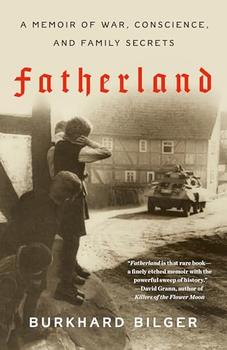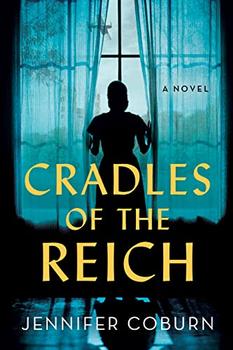Summary | Excerpt | Reading Guide | Reviews | Beyond the book | Read-Alikes | Genres & Themes | Author Bio

The novel bears witness to the shame and courage of Third Reich families during the devastating final days of the war, as each family member's fateful choice lead the reader deeper into questions of complicity and innocence, to the novel's heartbreaking and unforgettable conclusion.
Motherland is inspired by stories from the author's father and his German childhood, and letters between her grandparents that were hidden in an attic wall for fifty years. It is the author's attempt to reckon with the paradox of her father - a product of her grandparents' fiercely protective love and their status as Mitläufer, Germans who "went along" with Nazism, first reaping its benefits and later its consequences.
This page-turning novel focuses on the Kappus family: Frank is a reconstructive surgeon who lost his beloved wife in childbirth and two months later married a young woman who must look after the baby and his two grieving sons when he is drafted into medical military service. Alone in the house, Liesl must attempt to keep the children fed with dwindling food supplies, safe from the constant Allied air attacks, and protected against the swell of desperate refugees flooding their town. When one child begins to mentally unravel, Liesl must discover the source of the boy's infirmity or lose him forever to Hadamar, the infamous hospital for "unfit" children. The novel bears witness to the shame and courage of Third Reich families during the devastating last days of the war, as each family member's fateful choices lead them deeper into questions of complicity and innocence, to the novel's heartbreaking and unforgettable conclusion.
Maria Hummel's characterizations, rich descriptions and portrayal of a city in wartime make this one a good choice for anyone who enjoys WWII novels that focus on the way the conflict impacted the citizens of Germany...continued
Full Review
 (728 words)
(728 words)
(Reviewed by Kim Kovacs).
In Motherland, one of the brothers, Ani, is a patient at a hospital in Hadamar, which was notorious for implementing the Nazis' systematic euthanasia program.
Darwin's theory of evolution through natural selection had the unintended consequence of giving birth to Social Darwinism – determining the course of human evolution through selective breeding, otherwise known as eugenics. The idea was very popular in Europe and particularly the United States in the early part of the 20th century. Several countries (including the USA) developed policies whereby those with hereditary mental or physical defects could be sterilized to prevent them from "contaminating" the general population.
In Germany, the National Socialists (Nazis) put "...

If you liked Motherland, try these:

by Burkhard Bilger
Published 2024
A New Yorker staff writer investigates his grandfather, a Nazi Party Chief, in this "unflinching, gorgeously written, and deeply moving exploration of morality, family, and war" (Patrick Radden Keefe, author of Empire of Pain).

by Jennifer Coburn
Published 2023
Three women, a nation seduced by a madman, and the Nazi breeding program to create a so-called master race.